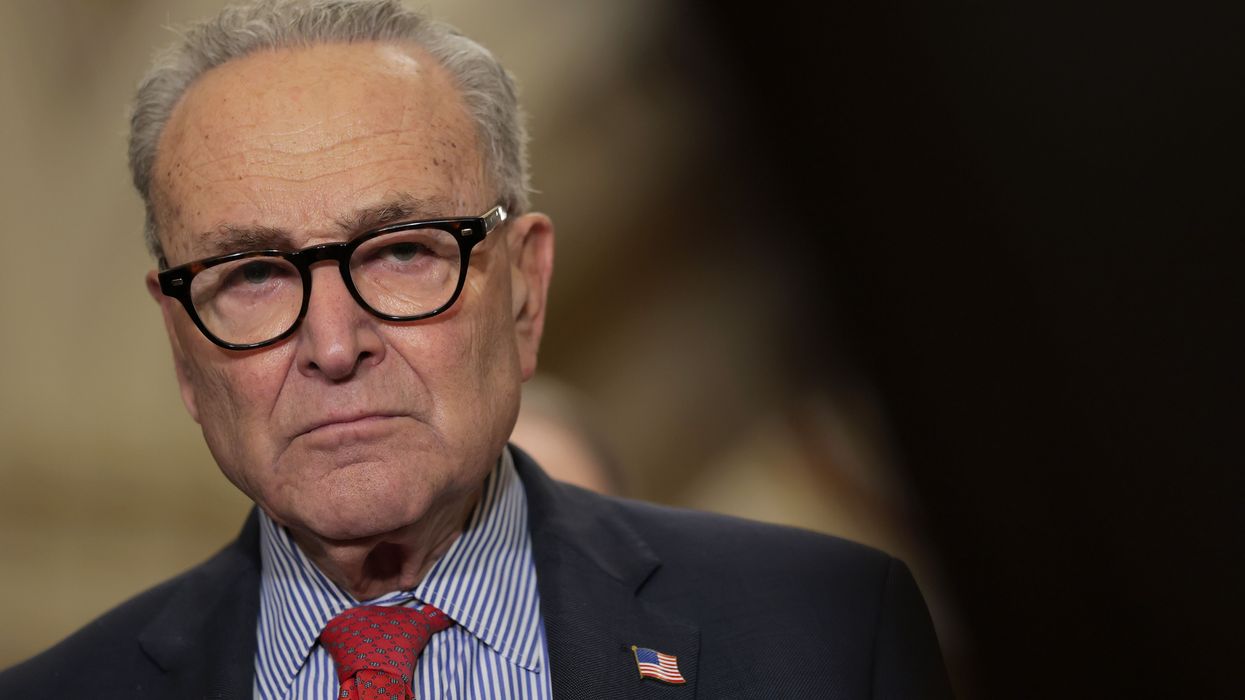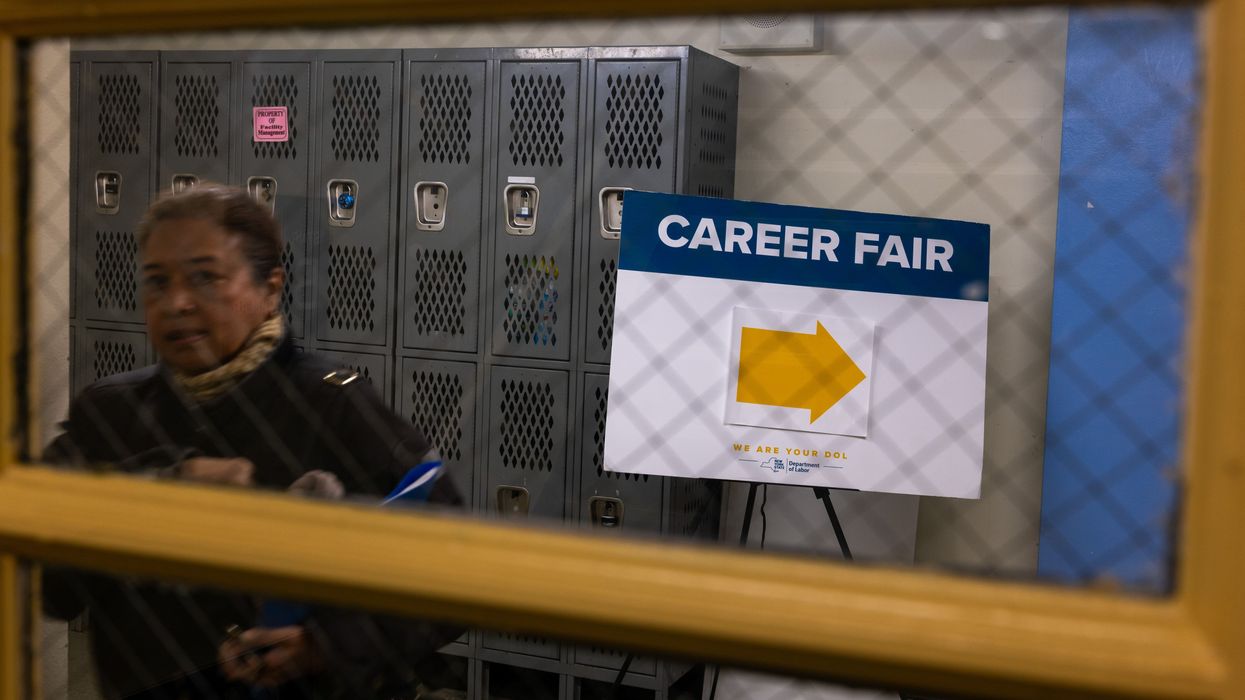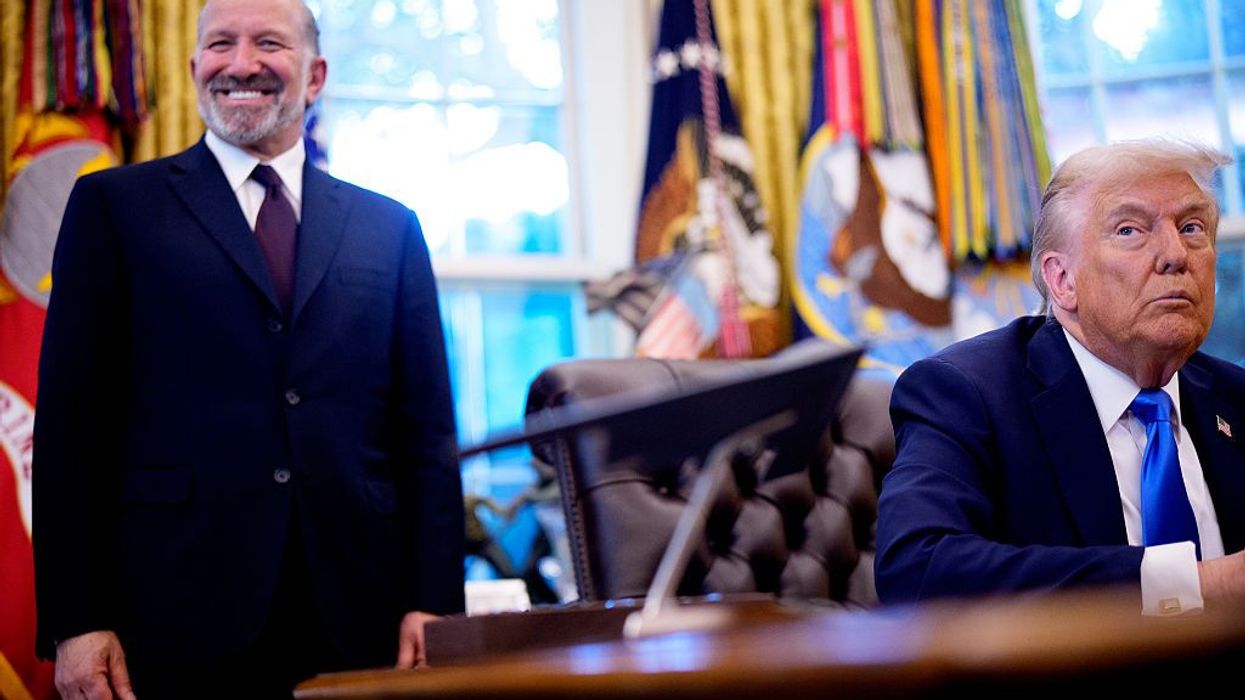December, 20 2021, 09:55am EDT

West Virginia Small Business Owners Reaffirm Support for Build Back Better
The status quo continues to harm small businesses in West Virginia, Main Street Alliance Members say.
WASHINGTON
Small businesses across West Virginia strongly support the Build Back Better Act and will not rest until the Senate passes these needed critical investments in our economy.
The Build Back Better Act and the Infrastructure Investment and Jobs Act will make critical investments we need to boost our economy and rebuild our communities. One without the other is a job half done.
The long-overdue inclusion of paid family and medical leave is a win for small businesses and an opportunity to build back better with equity. The status quo remains a challenge for small businesses, with 88% citing business challenges due to a lack of child care or paid leave programs in a recent Main Street Alliance member survey. The support for care, tax fairness, lowered drug costs and more are not only popular with the public, but it will improve millions of lives, and finally enable many more people to have a fair shot at prosperity, security, and mobility.
Taxes on the wealthy and corporations mean they start to pay their fair share. And the needed investments in the bill will not come at an additional cost to taxpayers. According to economists, it is anti-inflationary. The Build Back Better Act takes on the false narrative of trickle-down economics by prioritizing investment in our main streets and middle class instead of corporate subsidies. It is no surprise that large business lobby groups are fighting tooth and nail against it. As Senator Manchin continues to delay, West Virginia small business owners are speaking out to ensure a small business economy that works for everyone.
Quotes from Main Street Alliance members in West Virginia on the Build Back Better Programs:
Sara McDowell, The Media Squirrel, Charleston, WV:
"I don't mind paying taxes. I don't mind paying my fair share of taxes because I know where it goes. Local schools. Local hospitals. First responders. And more. All critical components to building healthy and strong communities. But if we want to build healthy, strong, and economically thriving communities, well, we've got to address the current taxation system. The Biden-Harris administration's Build Back Better American recovery package does just that."
Tiffany Gale, Miss Tiffany's Early Childhood Education House, Weirton, WV:
"To level the playing field between big corporations and small businesses on retention and recruitment, and to allow our employees and ourselves the freedom to take the time to care when a medical surgery, new child, or elder parent needs it, we need to pass a federal program. We need to pass the Build Back Better plan, with all of its care investments. I am so grateful to be able to keep my business thriving through the support of a child care stabilization grant. But we are not done yet. We cannot let our foot off the gas if we want to have a resilient economic recovery."
Mark Hatcher, Superior Pocahontas Construction, Logan, WV:
"I offer health insurance at my company of 40 or so employees, but sometimes it's not enough. Once, I had an employee who developed gangrene and had to take extended time off work to heal. I didn't want to lose the employee so paid him out of pocket when he was unable to be at work. A national paid leave program would be critical for situations we cannot predict."
Kate Pacelli, Farmer's Daughter Market and Butcher, Capon Bridge, WV:
"Paid leave support would help WV's economy. In fact the investments in the care economy, paid leave and child care outlined by the Build Back Better Plan, would mean new jobs in West Virginia, and increase care wages - meaning more spending at small businesses like mine."
Jodi Hollingshead, As You Are Boudoir, Morgantown, WV:
"In West Virginia, over 113,000 small businesses like myself employ over 49% of West Virginia's workforce -- higher than the national average. That means employees and business owners across our state are more likely not to have access to a private paid leave program through an employer. The private insurance market has priced us out. To level the playing field between big corporations and small businesses on retention and recruitment, and to allow our employees and ourselves the freedom to take the time to care when a medical surgery, new child, or elder parent needs it, we need to pass a federal program."
Leah Messer, Charleston, WV:
"Paid leave would be a game-changer for West Virginia families, too many of whom are facing the challenges of substance abuse disorder. West Virginia has the highest rate of opioid deaths in the country. I am imploring Senator Joe Manchin to put his support behind this critical program. Now might be the only time we can get it done, and any delay is more lives lost. What's more, this program would support business owners like me."
Cindy Lavendar-Bowe, Barnwood Living, West Sulphur Springs, WV:
"We had an employee who was pregnant and we did not want to lose her. We talked to our employee and ended up paying her her salary so we wouldn't lose her, while we picked up the extra work. It was tough on our business, but without a strong national paid leave policy, we had no other option. A federal policy would mean our employees could still receive their salaries on leave, and we could use the extra funds to hire temporary workers or pay overtime for other staff rather than doubling up on salaries."
Stephanie Woody, The Vandalia Co, Charleston, WV:
"Small businesses and our employees need the care supports that are in Build Back Better now more than ever, especially in this pandemic."
**Contact Sarah Crozier, Main Street Alliance to speak with any of these Main Street Alliance members.
The Main Street Alliance (MSA) is a national network of small business coalitions working to build a new voice for small businesses on important public policy issues. Main Street Alliance members are working throughout the country to build policies that work for business owners, their employees, and the communities they serve.
LATEST NEWS
'Why Is This Hard?' Schumer Won't Say He Opposes Regime Change in Venezuela
"Twenty-five years ago, Chuck Schumer and Susan Collins both voted to send me and friends to kill and die in Iraq," said US Senate candidate Graham Platner. "Apparently neither of them have learned a thing."
Dec 11, 2025
US Rep. Ro Khanna suggested on Thursday that the top Democrat in the Senate had offered the latest evidence that the party needs "a new generation to lead... with moral clarity and conviction" after Sen. Chuck Schumer refused to denounce the Trump administration's threats of regime change in Venezuela.
"Why is this hard?" asked Khanna (D-Calif.) after Schumer (D-NY), the Senate minority leader, told CNN's Jake Tapper Wednesday evening that "everyone would like" it if Venezuelan President Nicolás Maduro "would flee on his own" instead of stating that the US should not try to force out the South American leader.
When asked point-blank if he disagrees with President Donald Trump's "ultimate goal of regime change in Venezuela," Schumer turned his focus to the lack of clarity in the White House's strategy.
"The bottom line is President Trump throws out so many different things in so many different ways. You don't even know what the heck he's talking about. You know, obviously, if Maduro would just flee on his own, everyone would like that. But we don't know what the heck he's up to when he talks about that," said Schumer. "You cannot say I endorse this, I endorse that when Trump is all over the lot, not very specific and very worrisome at how far he might escalate."
Chuck Schumer won't say if he opposes regime change in Venezuela.
JAKE TAPPER: Do you disagree with President Trump's ultimate goal of regime change in Venezuela?
CHUCK SCHUMER: Look, the bottom line is President Trump throws out so many different things in so many different… pic.twitter.com/kwjWMsBgM8
— Ken Klippenstein (NSPM-7 Compliant) (@kenklippenstein) December 10, 2025
Schumer's response, Khanna suggested, should have been: "Yes, Democrats oppose regime change war in Venezuela. Instead of wasting trillions on endless wars, we must invest in jobs, healthcare, and housing for Americans."
The CNN interview took place hours after the US military seized an oil tanker off the coast of Venezuela in what one think tank called an "illegal" escalation. In recent weeks Trump has claimed he's ordered the airspace above and around Venezuela closed—an action experts said he had no legal authority to take—authorized covert CIA action in the country, and this week said the US plans to "hit ‘em on land very soon," threatening strikes against Venezuela as well as Mexico and Colombia.
The White House has aggressively pushed a narrative about the need to stop the trafficking of fentanyl from Venezuela—despite findings by the Drug Enforcement Administration and the United Nations that the country plays virtually no role in the flow of the drug into the US. At least 87 people have been killed in US military strikes on boats in the Caribbean and eastern Pacific since September—bombings that Defense Secretary Pete Hegseth and Trump have claimed without evidence have targeted "narco-terrorists," but which Latin American officials, the family of one victim, and legal experts have denounced as extrajudicial killings and homicide.
Trump has previously signaled a desire to take control of Venezuela's vast oil reserves.
On November 21, Trump reportedly spoke to Maduro in a phone call and offered him safe passage out of Venezuela if he abdicated power, in the most explicit confirmation that the administration is seeking regime change. A CBS/YouGov poll released two days later found that 70% of Americans oppose any military action in Venezuela.
Labor attorney Benjamin Dictor and Democratic US Senate candidate Graham Platner of Maine were among those who joined Khanna in condemning Schumer's refusal to unequivocally reject the goal of forcing Maduro out through military action.
"Chuck Schumer is so spineless he can’t even affirmatively oppose illegal, unauthorized regime change by military force," said Dictor.
Schumer has called for the passage of a war powers resolution to block the deployment of US forces in Venezuela. As Trump has continued the boat bombings and built up military presence in the Caribbean, two war powers resolutions aimed at stopping the US from striking boats and targets inside Venezuela have failed to pass.
But his refusal to speak out comes two months after journalist Aída Chávez reported that a "senior Democratic staffer" was "discouraging Democrats from coming out against regime change in Venezuela... arguing that opposing Trump and [Secretary of State Marco] Rubio's regime change amounts to supporting Maduro."
After Schumer's interview, Matt Duss of the Center for International Policy joined in calling for "regime change in the Senate Democratic Caucus."
Keep ReadingShow Less
New Unemployment Claims Jump to Highest Level in Months as Trump Economy Teeters
"While President Trump calls affordability a ‘hoax,’ countless families are being forced into impossible tradeoffs every day."
Dec 11, 2025
Federal data released Thursday shows that the number of Americans filing for unemployment benefits surged last week, another indication of growing instability in President Donald Trump's economy as corporations lay off workers en masse and prices continue to rise.
For the week ending December 6, new unemployment claims jumped to 236,000—an increase of 44,000 from the previous week, according to figures from the US Labor Department.
Andrew Stettner, an unemployment insurance expert at The Century Foundation (TCF) noted that new unemployment claims are now at their highest level since early September.
"These totals don’t include an additional 12,732 former federal workers who are also now relying on unemployment benefits, as the number of federal workers on UI has stayed at levels not seen since the pandemic, even after the government shutdown has ended," Stettner said.
"This disappointing news comes on the heels of other troubling labor market data," he continued, pointing to private-sector payroll figures showing the US economy lost 32,000 jobs in November. "With hiring still so weak, it is no surprise that the percentage of workers feeling confident enough to quit their job dropped to its lowest level since the beginning of the pandemic in April 2020. In fact, our polling shows that 27% of Americans said they took on a 'second job, side hustle, or gig work' in the past year to help make ends meet."
The updated unemployment numbers come as Trump is on an economic messaging tour during which he has dismissed the notion that his policies have worsened the country's affordability crisis, calling such claims a Democratic "hoax" even as polling shows Americans—including a significant percentage of his own voters—increasingly blame the president for rising costs groceries and other necessities.
"We inherited the highest prices ever, and we’re bringing them down,” Trump said, falsely, during a stop in Pennsylvania earlier this week.
"We’re crushing it, and you’re getting much higher wages,” the president added, another falsehood.
Survey data released Thursday by The Century Foundation shows that Americans are increasingly skipping meals and doctor visits as prices rise.
"Roughly three in 10 voters delayed or skipped medical care in the past year due to cost, while nearly two-thirds switched to cheaper groceries or bought less food altogether," the group noted in a summary of its findings. "About half tapped into their savings to cover everyday expenses."
Julie Margetta Morgan, president of The Century Foundation, said in a statement that "while President Trump calls affordability a ‘hoax,’ countless families are being forced into impossible tradeoffs every day as a result of Trump’s disastrous policies that are jacking up prices."
"Working-class Americans are living in a different, harsher economy under Trump," Morgan added, "and they feel the impacts of financialization—and the added risks and costs that come with it—most severely."
Keep ReadingShow Less
Trump Economic Approval Hits All-Time Low as White House Official Insists ‘Nothing Bad Is Happening’
“Trump’s claims about inflation are false, and you can go to the grocery store and see it yourself,” said one economist.
Dec 11, 2025
A new poll shows US voters' approval of President Donald Trump's handling of the economy has hit an all-time low, even as the president and his officials insist the economy is the best in the world.
The latest Associated Press-NORC Center for Public Affairs Research poll released Thursday found that only 31% of voters approve of Trump's handling of the economy, the lowest figure in that survey throughout either of his two terms in office. Overall, 68% of voters said that the current state of the economy was "poor."
What's more, Trump's approval rating on the economy among Republican voters now stands at just 69%, a strikingly low figure for a president who has consistently commanded loyalty from the GOP base.
Despite the grim numbers, the president and his administration have continued to say that the US is now in the middle of an economic boom.
During a Thursday morning interview on CNBC, Commerce Secretary Howard Lutnick said that the US now has "the greatest $30 trillion economy in the world."
"We are doing great," Lutnick said. "Nothing bad is happening. Greatness is happening. We grew at 4% GDP! Come on!"
Lutnick: "Jay Powell is too afraid to lead the greatest $30t economy in the world. We should be leading with our front foot. Instead we are always leaning back as if something bad is happening. We are doing great. Nothing bad is happening. Greatness is happening. We're growing 4%… pic.twitter.com/uWqrlwpllE
— Aaron Rupar (@atrupar) December 11, 2025
Lutnick's message echoes the one Trump delivered earlier this week during a rally in Pennsylvania, where he said that voters' concerns about being able to afford basics such as groceries, electricity, and healthcare were a "hoax" concocted by Democrats.
"Prices are coming down very substantially," Trump falsely claimed during his speech. "But they have a new word. You know, they always have a hoax. The new word is affordability."
Trump on the US economy: “I said it the other day. And a lot of people misinterpreted it. They said ‘Oh he doesn’t realize prices are high.’ Prices are coming down very substantially. But they have a new word. You know, they always have a hoax. The new word is affordability.” pic.twitter.com/JkErFnkT1D
— Sahil Kapur (@sahilkapur) December 10, 2025
As NPR reported on Thursday, data shows that the prices of groceries and electricity have continued to rise throughout Trump's second term, directly contradicting his claims that prices are "coming down."
University of Michigan economist Betsey Stevenson told NPR that Trump is playing with fire by making false claims about prices when US consumers can see costs persistently going up.
"Trump's claims about inflation are false, and you can go to the grocery store and see it yourself," Stevenson said.
Even some members of Trump's own party are growing wary of him insisting that America is experiencing an unprecedented economic boom when voters feel otherwise.
Sen. Lisa Murkowski (R-Alaska) told The Hill that Trump's insistence on making happy talk about the economy would not fly with voters.
"You can’t call it a hoax and suggest that people are going to believe it," she said. "What you say matters."
An anonymous Republican senator also told The Hill that they were concerned about the optics of Trump building a massive luxury ballroom in the White House at a time when Americans say they are struggling financially.
"The cost of living just makes life very difficult on people," the senator stressed.
And Sen. Shelley Moore Capito (R-W.Va.) gently pushed back on Trump's messaging by telling CNN that "a lot of people are still having trouble making ends meet" in her state.
Keep ReadingShow Less
Most Popular


